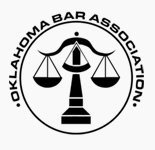The term “back taxes” refers to tax payments that were due to the government but went unpaid. If their tax payments are not kept current, taxpayers in Texas could be liable for back taxes at the local, state or federal level. The consequences of letting back taxes continue to go unpaid may include interest charges, penalties or more serious consequences like a wage garnishment or jail time.
Reasons for back taxes
People could owe back taxes for a variety of reasons. They may have filed a tax return but failed to pay the taxes owed, they may have failed to properly declare all of their taxable income for a particular year or they might not have filed a tax return at all.
Penalty accrual
The penalty for failure to file is 0.5% of the tax liability. That 0.5% is applied over and over every month until it reaches a maximum of 25% of the tax liability or until it is paid. Additionally, the Internal Revenue Service charges interest on the amount of the tax debt, including penalties.
Consequences for not paying back taxes
In addition to the automatic penalty and interest charges, failure to pay back taxes might also result in asset seizure, wage garnishment or tax liens to satisfy the tax debt to the IRS or other tax authorities. The IRS has the power to levy the taxpayer’s assets, which means that the agency can seize automobiles, real property or other assets and sell them to pay tax debts. The IRS can also levy bank accounts, investment accounts and other financial holdings to get tax payments.
Tax liens, wage garnishment and other consequences
A tax lien is a claim against assets. It’s not a seizure, but the tax authority becomes a creditor on the property liened. The IRS can garnish the wages of a taxpayer who owes back taxes. Jail time is possible as well in cases of unpaid back taxes.












